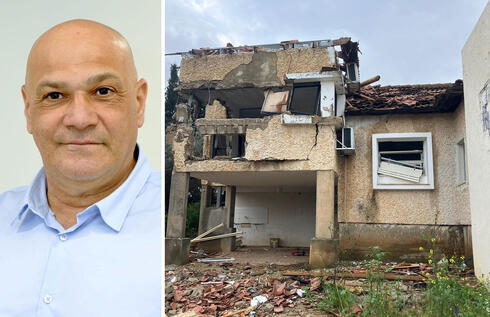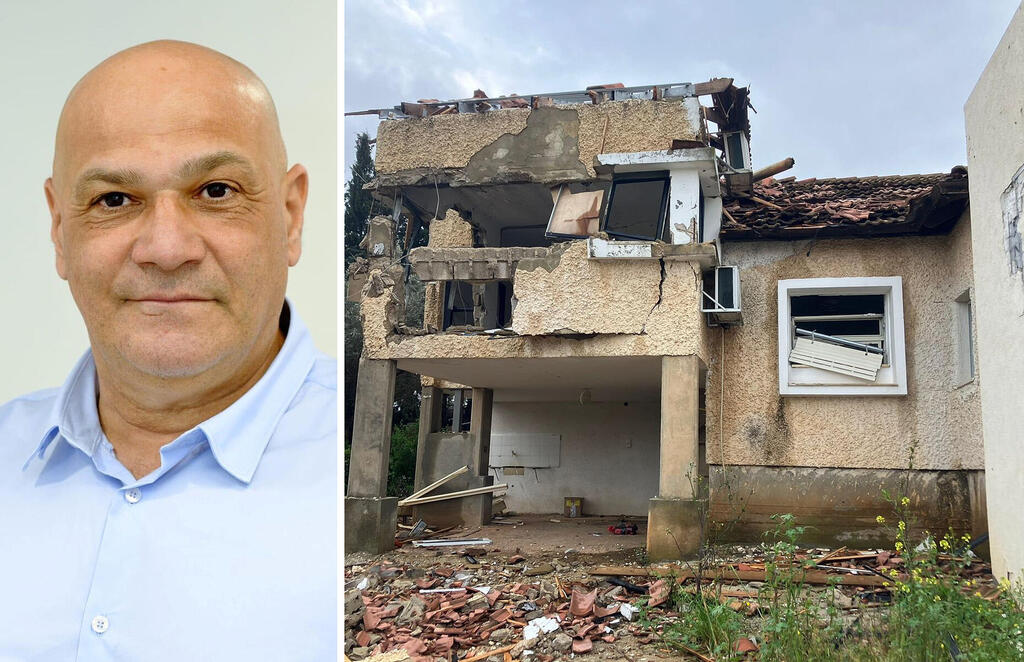
5,000 rockets per day and a shipping blockade: Israel preparing for all-out war with Hezbollah
Israel has been increasing its emergency stockpile of basic raw materials including food, medicine, and medical equipment on an unprecedented scale in preparation for a full-scale war with Hezbollah, the head of the National Emergency Management Authority has revealed
Israel has been increasing its emergency stockpile of basic raw materials including food, medicine, and medical equipment on an unprecedented scale, amounting to over NIS 2 billion ($545 million) in recent months, in preparation for a full-scale war with Hezbollah. This was revealed on Monday by the head of the Ministry of Defense’s National Emergency Management Authority (NEMA), Brigadier General Yoram Laredo, who spoke during an emergency conference held by the Manufacturers’ Association of Israel to prepare the industry for a possible war with Lebanon.
Laredo did not provide specific details about the current stockpile available to the state, but stated that it would be necessary to ensure the continued functioning of the economy during a full-scale war, which would include widespread rocket and missile attacks on Israel, on a much larger scale than those seen in the early days of the war in Gaza. "A full-scale war will disrupt Israel's supply chains and supply levels. When the first ship off of Israel's coast is hit, other ships will be deterred from coming here, and this will be the situation throughout the war. Ninety-nine percent of all goods that arrive in Israel come by sea," he said.
1 View gallery


Yarom Laredo and a house in Metula that was hit directly by a Hezbollah rocket.
(Credit: Edward Dox)
According to him, Hamas did not pose a significant threat to the functioning of Israel’s economy, but this would not be the case in a war from the north. He added that whereas on the first day of the war with Hamas, they launched around 2,500 rockets towards Israel, the average daily rate of rockets in a war with Hezbollah would be twice that, posing a significant threat to Israel's energy independence, with extensive damage to its electrical infrastructure. He stated that the potential targeting by Hezbollah of these infrastructures would lead to two to three national power outages lasting up to two days, while in some areas, outages could last for months. He did not specify which areas he was referring to.
The Director of the department for Emergency Preparedness and Functional Continuity at Noga, the government company that manages the national electricity grid, Bar Cohen, addressed the expected disruptions in the regular electricity supply to the economy, stating that "in the next war, there will be many power outages, no one can guarantee energy continuity."
According to him, the immediate impact of a war with Hezbollah would be on the supply of natural gas, which generates about 70% of Israel's electricity. "The moment a war breaks out, three natural gas pipelines that supply our power plants will stop operating, and we will immediately switch to alternative fuel-based electricity generation for protection. We estimate that many of our production systems will be affected, and we will lose thousands of megawatts. There will be disruptions to distribution and transmission, both due to rocket fire and fires due to damage to power lines. Apart from the two national power outages, there will be 11 regional power outages and many more local power outages," Cohen added.
One of the main models on which the security system and bodies rely for assessing the national electricity grid is based on the systematic attacks by Russia on Ukraine's electricity facilities since their 2022 invasion. Israel’s similarity to other countries in its electricity generation and operations may simplify Hezbollah's ability to damage it. "While Ukraine has received electricity from Germany and Moldova, we have no neighbors who will supply us with electricity," he said. Even in the early stages of such a war, Cohen notes, allocations will be made to preserve vital fuel reserves, resulting in daily power outages of four to six hours in specific areas.
Director of Emergency Preparedness at the Israel Electricity Company, Dror Greenberg, said that these threats have led the company to invest approximately NIS 180 million ($49 million) in passive defense measures to minimize damage to power plants across the country. According to him, such defenses are planned for the near future in about 100 secondary substations.
Amid daily exchanges of fire with Hezbollah in Lebanon for almost six months and the increased probability of a full-scale war, Laredo said that such a war would break out unexpectedly, whether initiated by Israel or Hezbollah. "The Minister of Defense has previously said that when Israel bombs Beirut, it will be obvious that it was us. Most of the rockets will be directed towards the cities and towns near Haifa and in the north," he said.
President of the Manufacturers' Association, Ron Tomer, said at the emergency conference that the issue of readiness for war engages the entire manufacturing sector, and "were it not for space constraints, three times the number of manufacturers would have attended this conference." Tomer said that despite the ongoing fire from Lebanon, industrial plants in the north are keen to maintain production routines, and as evidence, there is currently no supply shortages. He called on manufacturers to prepare for an escalation and to increase their raw material inventories required to maintain the functioning of the economy.













